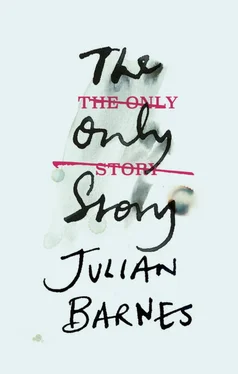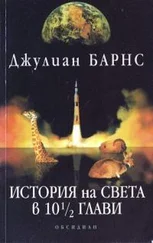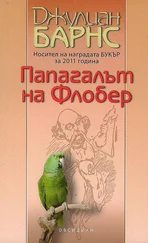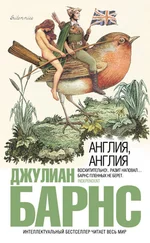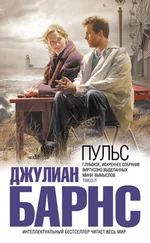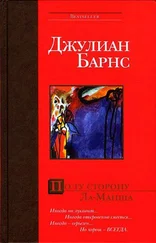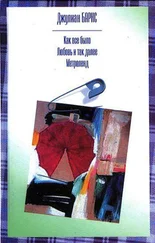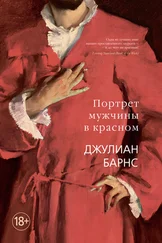‘One of the things the young man is kindly, if belatedly, addressing is the question of your mother’s musical education. Or, should I say, lack thereof.’
Then, turning to me: ‘Clara was named after Clara Schumann, which was perhaps a little ambitious on our part. She has never, alas, displayed much aptitude for the pianoforte, has she?’
I couldn’t tell if the question was addressed to mother or daughter. As for me, I had never heard of Clara Schumann, so felt at even more of a disadvantage.
‘Maybe, if your mother had begun her musical education earlier, she might have been able to pass on to you some of her now late-flowering enthusiasm.’
I had never before been in a household in which the male presence was so overbearing and yet so ambiguous. Perhaps this happens when there is only one man around: his understanding of the male role can expand unchallenged. Or perhaps this was just what Gordon Macleod was like.
Still, my inability to grasp tone was a lesser matter that evening. The greater problem was that, at nineteen, I was unskilled at knowing how to behave socially at the table of a man whose wife I was in love with.
Dinner and conversation proceeded. Susan seemed half-absent; Clara was quiet. I asked a few polite questions and answered some rather more direct ones in return. As I had told the tennis club’s high representatives, I had absolutely no interest in politics; though I did follow current events. So this would have been a few years after the Sharpeville massacre, to which I must have alluded; and doubtless my words contained some element of pious condemnation. Well, I did think it was wrong to massacre people.
‘Do you even know where Sharpeville is?’ The Head of the Table had evidently identified me as a mewling pinko.
‘It’s in South Africa,’ I replied. But as I did so, I suddenly wondered if this was a trick question. ‘Or Rhodesia,’ I added; then thought again. ‘No, South Africa.’
‘Very good. And what is your considered judgement on the political scene there?’
I said something about being against shooting people.
‘And what might you advise the police forces of the world to do when confronted with a rioting mob of Communists?’
I hated the way adults asked you questions in a way which implied that they already knew the answer you were going to give, and that it would always be a wrong or stupid one. So I said something, perhaps facetious, to the effect that just because they were dead, this didn’t prove they were Communists.
‘Have you ever been to South Africa?’ Macleod roared at me.
Susan stirred at this point. ‘We’ve none of us been to South Africa.’
‘True, but I think I know more about the situation there than the two of you put together.’ It seemed that Clara was excused from complicity in ignorance. ‘If we were to pile his knowledge on top of your knowledge – Pelion on Ossa, as it were – it still wouldn’t amount to a hill of beans.’
The long silence was broken by Susan asking if anyone wanted any more to eat.
‘Have you got any beans, Mrs Macleod?’
Yes, I could be a cheeky bastard, I now realize. Well, I was only nineteen. I hadn’t a clue who or what Pelion and Ossa might be; I was more struck by the notion of piling my knowledge on top of Susan’s. That was what lovers did, after all: they added to one another’s understanding of the world. Also, to ‘know’ someone, in the Bible anyway, meant to have sex with them. So I had already piled my knowledge on top of hers. Even if it didn’t amount to more than a hill of beans. However tall a hill of beans might be.
She told me that her father had been a Christian Science practitioner with many adoring female acolytes. She told me that her brother who had disappeared in the war had gone to a prostitute a few weeks before his last flight because he wanted to ‘find out what it was all about’. She told me that she couldn’t swim because she had heavy bones. Things like this tumbled out of her in no particular order, and in response to no particular enquiry on my part, other than the tacit one of wanting to know everything about her. So she laid them out, as if expecting me to make sense, to make order, of her life, and of her heart.
‘Things aren’t what they look like, Paul. That’s about the only lesson I can teach you.’
I wonder if she is talking about the sham of respectability, the sham of marriage, the sham of suburbia, or… but she carries on.
‘Winston Churchill, did I tell you about seeing him?’
‘You mean, you went to Number Ten?’
‘Silly, no. I saw him in a back street in Aylesbury. What was I doing there? Not that it matters. He was sitting in the rear seat of an open-topped car. And his face was all covered in make-up. Red lips, bright pink face. He looked bizarre.’
‘You’re sure it was Churchill? I didn’t realize he was…’
‘…one of them? No, it’s nothing like that, Paul, You see, they were waiting to drive him through the city centre – it was after we won the war, or maybe it was the General Election, and he was made up for the cameras. Pathé News and all that.’
‘How weird.’
‘It was. So quite a few people saw this strange painted mannequin in the flesh, but far more saw him on the newsreels, when he looked like they expected him to.’
I think about this for a while. It strikes me as a comic incident, rather than a general principle of life. Anyway, my interests are elsewhere.
‘But you’re what you look like, aren’t you? You’re exactly what you look like?’
She kisses me. ‘I hope so, my fine and feathered friend. I hope so for both our sakes.’
I used to prowl the Macleod house, part anthropologist, part sociologist, wholly lover. At first I naturally compared it to my parents’ house, which I therefore found wanting. Here there was style, and ease, and none of that absurd house-pride. My parents had better, more up-to-date kitchen equipment, but I gave them no credit for this; nor for the fact that their car was cleaner, their gutters recently sluiced, their soffits regularly painted, their bathroom taps buffed to a shine, their lavatory seats hygienically plastic rather than warmingly wooden. In our house, the television was taken seriously, and stood centrally; at the Macleods’, they called it the goggle-box and hid it behind a firescreen. They owned no such thing as a fitted carpet or a fitted kitchen, let alone a three-piece suite or a bathroom set in matching colours. Their garage was so full of tools, discarded sports equipment, gardening implements, old motor mowers (one working) and unwanted furniture that there was no room in it for the Austin. At first all this seemed stylish and idiosyncratic. I was initially seduced, then slowly disenchanted. My soul no more belonged in a place like this than in my parents’ house.
And, more importantly, I believed that Susan didn’t belong here either. It was something I felt instinctively, and only understood much later, over time. Nowadays, when more than half the country’s children are born out of wedlock (wed-lock: I’ve never noticed the two parts of that term before), it’s not so much marriage that ties couples together as the shared occupation of property. A house or a flat can be as beguiling a trap as a wedding certificate; sometimes more so. Property announces a way of life, with a subtle insistence on that way of life continuing. Property also demands constant attention and maintenance: it’s like a physical manifestation of the marriage that exists within it.
But I could see, all too well, that Susan had not been the recipient of constant attention and maintenance. And I’m not talking about sex. Or not just.
Here’s something I need to explain. In all the time Susan and I were lovers, I never thought that we were ‘deceiving’ Gordon Macleod, Mr E.P. I never thought of him as being represented by that peculiar old word ‘cuckold’. Obviously, I didn’t want him to know . But I thought that what took place between Susan and me had nothing to do with him; he was irrelevant to it all. Nor did I have any contempt for him, any young-buck superiority because I was sexually active with his wife and he wasn’t. You may think this is just a normal lover’s normal self-delusion; but I don’t agree. Even when things… changed, and I felt differently about him, this aspect didn’t change. He had nothing to do with us, do you see?
Читать дальше
